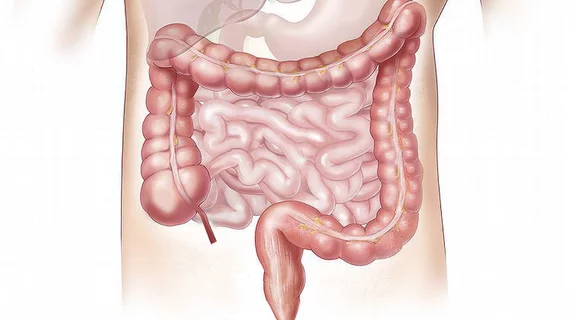MRI captures more detail in colon cancers than multidetector CT
MRI may be a better choice than multidetector CT for identifying high-risk colon cancers that have already reached stage II or stage III, are still surgically resectable and are at risk of progressing to stage IV.
That’s according to researchers at Kyungpook National University in South Korea. In their preliminary 38-patient study, published online Nov. 17 in Abdominal Radiology, MRI boosted interreader agreement over that recorded with multi detector CT (MDCT) while also cutting the rate of false positives.
The authors sent the patients, 29 of whom had adenocarcinomas of the colon histopathologically confirmed at stage II or higher, for imaging with the two modalities.
Next, two radiologists working independent of one another staged the tumors retrospectively, each one reading both the MRI images and the MDCT scans.
Comparing the resulting performances, the authors found the false-positive rate with MRI was notably lower than that with MDCT (0 percent vs. 7.9 percent for reader 1 and 2.6 percent vs. 10.6 percent for reader 2).
Moreover, MRI’s diagnostic performance was better than that of MDCT across both readers.
Finally, MRI interreader agreement for the assessment of tumors at high stage III and into stage IV was significantly better than that of MDCT.
“The diagnostic performance of MR imaging of the colon may be better than that of MDCT for identifying high-risk stage II or stage III cases,” the authors concluded, adding that larger studies are required to validate or challenge their findings.

